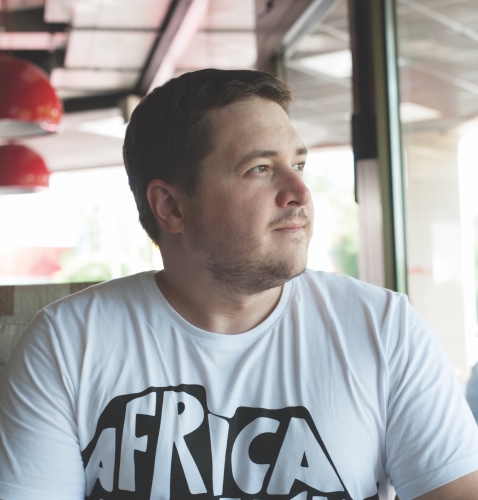
Artem Gudkov: Focus on Africa
Today, in order to work with Africa, it is necessary to ship up to 200 containers monthly. Not every Ukrainian company is up to it. We have opened a trading house that will enable Ukrainian producers of any products to enter the African market and work directly with customers. This rejects a number of intermediaries. Accordingly, Africans receive an honest price from a Ukrainian manufacturer, and Ukrainians have a unique opportunity to enter fairly large markets with relatively small volumes of produce.
At the moment, nobody knows what Ukrainian goods (not only food but also building materials, etc.) can be actively sold on African markets. Because we have never been there, we can not appreciate the demand and consumer preferences. Therefore, the product should be inside the market to understand how to perform the expansion of Ukrainian goods to Africa.
IT IS THE ONLY EVER GROWING, BUT UNSATURATED PRODUCT MARKET
All the countries are interesting for us in terms of logistics and export structure. The only question is from which to start and with what goods to go. In the CAR, for example, carrying highmargin goods makes no sense. Demand is absent, poor country. But to Nigeria it is already pos sible to export both agricultural equipment and equipment for process ing. But you have to hurry.
Africa is the only ever growing, but unsaturated product market. In Ethiopia, the GDP growth rate is 10% over the past 5 years. In other countries of SubSaharan Africa it is 6, 7, 5%.
In Ethiopia, Kenya, Tanzania, Angola there are programs for the de velopment of domestic production. If you are an investor, you produce, recycle or even export manufactured goods within the country, you are exempted from paying taxes for 510 years.
AFRICAN COUNTRIES ARE NOT SUBJECT TO THE QUOTA SYSTEM OF THE EU
International experts say that over the next 50 years, Africa will po tentially increase agricultural production. These are, first of all, goods that compete with ours: wheat, corn, sunflower, sunflower oil. But, attention: African countries are not subject to the quota system of the EU, the United States, China. That is, if, for example, the chicken is grown in Africa, then as much of it as you like can be imported to the EU outside the quotas. China introduced an additional duty for Ameri can meat. And if the meat of proper quality is of African origin – there is no limit.
But not Africans are our competitors, but those who use their power in order to compete in the market. Africans make it possible for for eigners with experience and money to do this, creating a completely comfortable investment climate. And Ukraine loses to African countries in competition for investment.
EXPORTS OF AGRICULTURAL RAW MATERIALS TO AFRICA ARE TEMPORARY
The African market is not the in focus of Ukrainian exports. And it’s very easy to prove: the number of official visits to African countries and their level. When the country is in focus, this means that we do not actually go from there: one minister goes away, the next comes in, then the business, the president, the prime minister, and so it goes on constantly. This consistent activity can give the result.
Exports of agricultural raw materials to Africa are temporary until they begin to produce the required quantity by themselves. And we need to promote goods with added value, which will create jobs for us. It needs an understanding that every billion of exports of value added products have a multiplier effect.
IT IS IMPOSSIBLE NOT TO FIND SALES IN AFRICA
Africa is interesting to Ukrainian business, but there are two problems. The first one is that nobody understands how to work there. Opening a business in Europe or the United States has the risk that it will not work because you will not get sales. There is no such thing in Africa. But there is a risk that you will not learn how to work with Africans. Although they are mentally similar to Ukrainians, they have the same approach to cooperation. Whether it’s bad or good – the thing is it is just business conditions. .
The second one – it is very expensive to keep the company here. The office, storage, staff – all this will cost 5070 thousand dollars a month. And for the company to reach a proper level, it takes about a year.
Therefore, we, the PanAfrican Trading Alliance, offer companies to actually divide the costs of maintaining a project between themselves and thus work together on the African market more efficiently.
